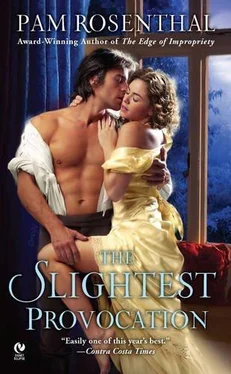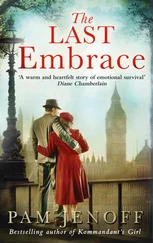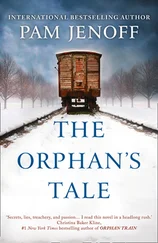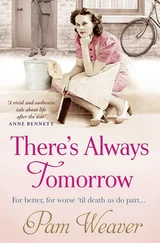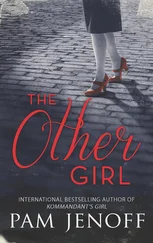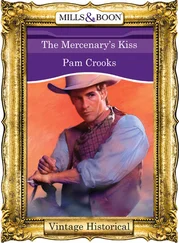But at ten years of age, the advent of Esslynne had only proved to her that the journey would never end. And would only grow more unendurable, for their governess had pronounced Mary too old to be told stories.
“You’re an extremely capable reader. Here, I’ve brought your copy of Original Stories from Real Life. And if that doesn’t interest you, remember that there’s your Latin exercise still to be done today.”
On a traveling day? But she wouldn’t dare stick out her tongue at Miss Archer. Definitely no Latin, though, at least for as long as she could put it off. Sullenly, she opened the book she’d been handed, a set of moral tales about two insipid sisters who liked nothing better than to distribute their pocket money among the poor.
Even her own sisters were more interesting than that, whinge as they might about the vexations of being the second family in the neighborhood and never invited to a ball at Rowen. Of course, they agreed, Papa had been in the right about the poaching incident. But couldn’t he even try to make it up with the marquess? For almost a decade had passed. And it would be such fun to know the dowager marchioness, who was as beautiful as Mama but much more fascinating.
“Her new muslins are the latest thing, more elegant than what most of Mayfair is wearing but so simple and comfortable, one could wear the lightest stays…”
At which point Julia had whispered something to Jessica, and Jessica had gasped and giggled in response.
Id-jits.
Mary had turned back to her book with renewed disgust for her sisters, pride in Papa’s strength of character, and a child’s fierce hatred for the cruel and murderous Stansells.
Everyone in the neighborhood knew about the disputed estate boundary, and how Mr. Penley’s claim had quite bollixed the marquess’s case against a man accused of poaching game. The grouse having been bagged upon the contested tract of land, the poacher went free-causing the marquess to rage that his neighbor was a traitorous Jacobin, and to forbid his wife and children to speak to any of the Penleys.
Indecent that a brewer should be so rich, he’d shouted. Disgusting that the ancient laws of property had fallen into such disrespect. No wonder the country was going to the devil.
Mary had been a baby at the time, and Kit a very little boy. But it had made a strong impression on him. Helpless with fury, his lordship was, he’d told Mary after they’d become friends. Unbearable to be bested by a man of lesser station, you see.
She did see, now that it was too late for it to matter anymore. She gazed aimlessly out the window, at the misty-moist green fields bordered by thorn and horn-beam, elms and giant beeches casting long late-afternoon shadows as the coach swayed against the bends in the road.
The coach was stifling, the motion of the coach more jolting as the roads became more primitive and rural. She closed her eyes to ward off dizziness, and woke with a start at Grefford, to Jessica’s fair, pretty face smiling in at her through the coach window.
The prettiness grown a bit faded: widowhood was difficult for her sister. Jessie looked tired and a bit dazed, as though still not believing that her charming, buoyant husband had succumbed to the influenza. For (leaving aside the episode of the kitchen maid) Arthur Grandin had continued kindhearted, good-natured, and as delighted to have fallen in love with a brewer’s educated daughter as with a duchess. Jessica’s marriage portion was just what he’d needed to complement his own sparse income and excellent pedigree; he’d accepted his happy fortune as his due, and so had everyone who knew him.
Of course, there’d been no question of a baronet’s son managing a brewery. Jeremy MacNeill would have done splendidly, but Jeremy had inherited far too many business interests of his own. So Papa had sold out his shares, invested the proceeds in superbly reliable securities for his daughters, and retired into his gardens, his library, and a lingering melancholy after that last baby (it had been a boy) was born dead, sometime around Mary’s eleventh birthday, which had slipped by with very little notice.
Enough memories. Among hugs and kisses, laughter, and a few tears, she and her sister passed arm in arm out of the inn yard to the little High Street, deeply rutted and perhaps a bit shabbier than when last she’d seen it. Probably from the long, wet winter they’d had, or was it simply the effect of the shadows, the deepening violet sky?
A haggard, rather frantic-looking workman pitched himself by her and Jessica, nearly jamming into them, quite as though he hadn’t noticed them walking toward the Grandin carriage.
Now that’s a rude mechanical -the joke had barely taken shape in her mind when her eye became distracted by a most exquisite creature making her slouched, languid way toward them-willowy and graceful, pitiless and perfect, with huge, brilliant eyes rolling in exasperation and-ah yes, Mary was beginning to understand, utter mortification at the sound of every entirely commonplace word Jessica uttered.
Betts? She swallowed the name back. Jessie had been right-the girl had become a beauty. Mary felt herself unwillingly and unaccountably intimidated, awed as though in the presence of royalty.
“E-Elizabeth?”
Did royalty suffer itself to be hugged? Just barely, it seemed.
“Hullo, Aunt Mary.” Pulling away and making for the carriage, where Peggy, a footman, and Jessica’s coachman were loading Mary’s things.
“Another quarrel this morning,” Jessica whispered, quite as though the girl weren’t watching, her narrowed eyes sending blue-diamond sparks in their direction. “About her new gown for Midsummer Night. I’ll tell you about it later.”
As they set off, Mary just had time to wave to Cathy Williams, briskly leading the stout lady down the High Street. The Grandin carriage would be turning in the opposite direction, through the market square…
“She must be the school’s new cook,” Jessica said. “Which is a blessing, for Cathy’s been doing it herself these weeks, and the word about the village is that her scholars aren’t enjoying it.”
I’ll turn away from the window, Mary thought, shut my eyes if necessary, when we pass the spot where he’d swung himself up on his horse …
A local boy had been holding both horses’ reins, young Lord Christopher and his older brother Lord William having ridden together into the village. The village boy’s face was a study in sullen confusion: annoyed to be pulled from an ongoing game to mind the marquess’s sons’ horses, yet proud despite himself to have been the one asked to do it.
Kit would have been thirteen; by then Mary would have had a proper twelfth-birthday party, to make up for her lonely, unsatisfactory eleventh. Mama would have been doing charitable errands, leaving Mary to distribute her leftover birthday sweetmeats among the girls and boys playing in the square.
He hadn’t noticed her, though she’d been standing quite close by. Well, why should he? After an hour with the village children, she’d be as dusty and unkempt as they were. And anyway, the Stansells and the Penleys were enemies.
Head high, reins held carelessly in a long, strong hand (not a boy’s hand at all, she remembered thinking), Kit had ridden away with a haughty expression on his face, even as the village boy had begun salving his self-respect by muttering curses. Too softly spoken to be heard by the young gentlemen on horseback, they were nonetheless quite awful and entertaining curses, about parentage and bad women-far worse and much more fascinating than anything Mary or her sisters would dare to say.
Читать дальше
